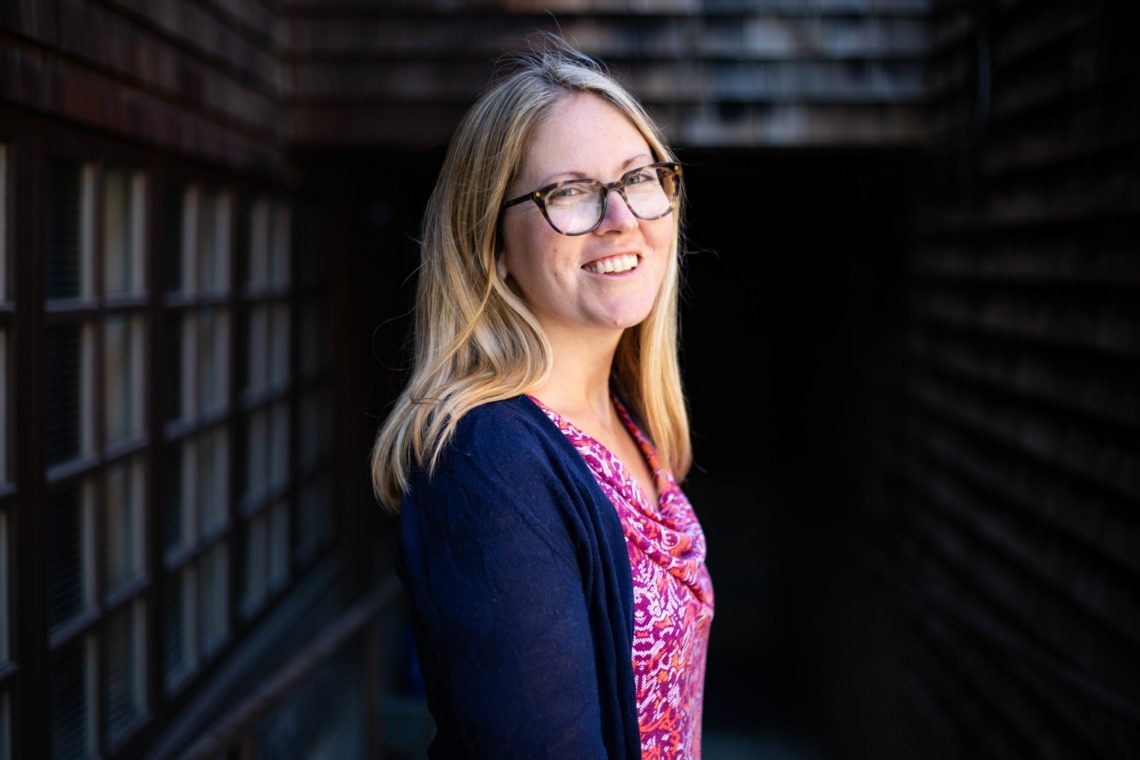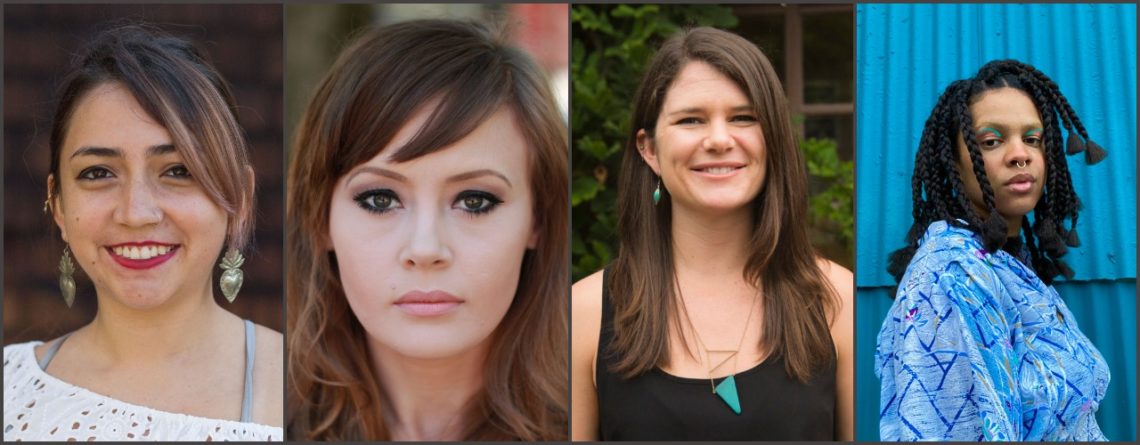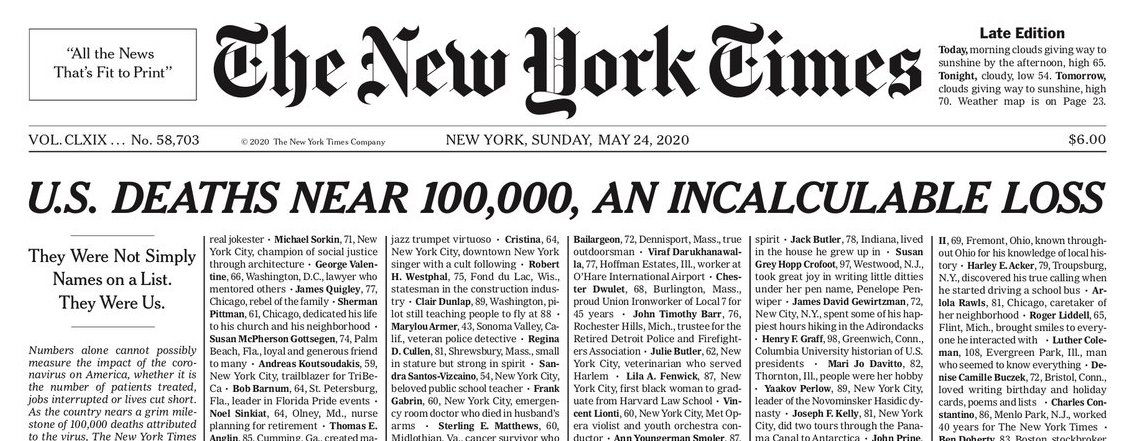The work of a Berkeley Journalism lecturer, five students and two alumni was honored in the 2021 Pulitzer Prizes, in the Breaking News, National News and Public Service categories, Columbia University announced.

Abbie VanSickle
Abbie VanSickle was a key member of the staff of The Marshall Project that was awarded the Pulitzer Prize for National Reporting for a year-long investigation of K-9 units and the damage that police dogs inflict on Americans, including innocent citizens and police officers. Their stories prompted numerous statewide reforms.
VanSickle, a lecturer at the School and a former reporter at the Investigative Reporting Program (IRP), chronicled the story during two particularly stressful periods—the pandemic and the forest fires in California—with two young children at home. “I am so grateful for all the people who trusted us to share their experiences, honored to be part of this collaboration and thankful for the recognition from the Pulitzer board,” said VanSickle. She said Michelle Pitcher (‘21), who was an IRP research assistant and an IRP summer intern at the time, was an “invaluable part” of the reporting team, especially on public records requests and evaluating the raw data the team received. “She embodies the best of Berkeley Journalism. She’s smart, tenacious and dedicated to exposing wrongdoing in the public interest,” VanSickle said.

Michelle Pitcher
“This is absolutely the honor of a lifetime!,” Michelle Pitcher said. “Not only being recognized by the Pulitzer Prize board, but also being able to work on such an incredibly impactful project with some of my journalistic heroes. I’ll forever be grateful to the School and the Investigative Reporting Program — in particular Prof. David Barstow and Abbie VanSickle, who brought me onto the project. It was an incredible experience from start to finish.”
Four recent graduates contributed to the, “courageous, prescient and sweeping coverage of the coronavirus pandemic” that won The New York Times the 2021 Pulitzer Prize in Public Service.
Their involvement was part of a pivot Berkeley Journalism leadership made at the onset of pandemic last year, directing our students to focus on reporting out one of the most important stories of our time.

Yuriria Ávila, Barbara Harvey, Alex Matthews and Chloe Reynolds.
Barbara Harvey (’20), Alex Matthews (’20) and Yuriria Ávila (’21) helped to compile “U.S. Deaths Near 100,000, An Incalculable Loss,” a stunning, historic 1A without images—instead with passages from newspaper obituaries across the country—to convey the vastness and variety of lives lost to Covid-19. The three also contributed to, “Tracking the Coronavirus at U.S. Colleges and Universities.” Chloe Reynolds (‘21), Harvey and Matthews also contributed to “Coronavirus in the U.S.: Latest Map and Case Count” and “Nearly One-Third of U.S. Coronavirus Deaths Are Linked to Nursing Homes.” Austin Ramzy (‘03) was credited for the Times’ victims front page story and “Live Briefing: Coronavirus Death Toll Climbs in China, and a Lockdown Widens.”

“Our students are incredibly talented,” Geeta Anand, dean of Berkeley Journalism said. “These stories show the phenomenal work they are capable of doing, and we could not be prouder. We’re so thankful to our partners at The New York Times and The Marshall Project for bringing them onboard.”
“Barbara, Alex, Yuri and Chloe were among 80 Berkeley Journalism students who helped The New York Times cover the pandemic, and their vital contributions to the paper’s brilliant Covid data reporting are emblematic of the terrific work so many of our students did for The Times,’’ said David Barstow, himself a four-time Pulitzer Prize-winner who is head of Berkeley Journalism’s Investigative Reporting Program. “Their data journalism, and Michelle Pitcher’s reporting for The Marshall Project, demonstrate yet again the contributions our students are making on a regular basis to newsrooms big and small.”

Andy Mannix
Andy Mannix (‘15), a reporter covering federal courts and law enforcement at the Star Tribune in Minneapolis authored one of the winning stories in the Breaking News category. The publication’s coverage was honored for its, “urgent, authoritative and nuanced coverage of the death of George Floyd at the hands of police in Minneapolis and of the reverberations that followed.”
Mannix’s investigation, “Minneapolis’ Third Precinct served as ‘playground’ for renegade cops” revealed that even before George Floyd was killed, the south Minneapolis precinct had a reputation for being home to police officers who played by their own rules.
“The murder of George Floyd ignited a cultural reckoning that changed the way our country understands the intersection of race and police,” said Mannix. “At some point in the haze of those first days and nights, my coworkers and I came to understand that this tragic killing and aftermath would endure as an important moment in American history. As local reporters, we felt a special duty to provide the depth of coverage that would help readers truly understand these events in this place and time. This award is some affirmation that we accomplished our crucial mission, and my colleagues and I are honored to receive it.”

Stephen Hobbs
Stephen Hobbs (‘14), a Pulitzer Prize-winning investigative reporter at The Post and Courier in Charleston, South Carolina was a finalist for Local Reporting for “Rising Waters,” a series on the crippling effects of sea rise and flooding on people’s lives and the greater Charleston economy.
